Avascular Necrosis Treatment Cost in India
Unlock Exclusive Discount : Your Gateway to Premium Healthcare with Medsurge India Health Value Card.

Unlock Exclusive Discount : Your Gateway to Premium Healthcare with Medsurge India Health Value Card.

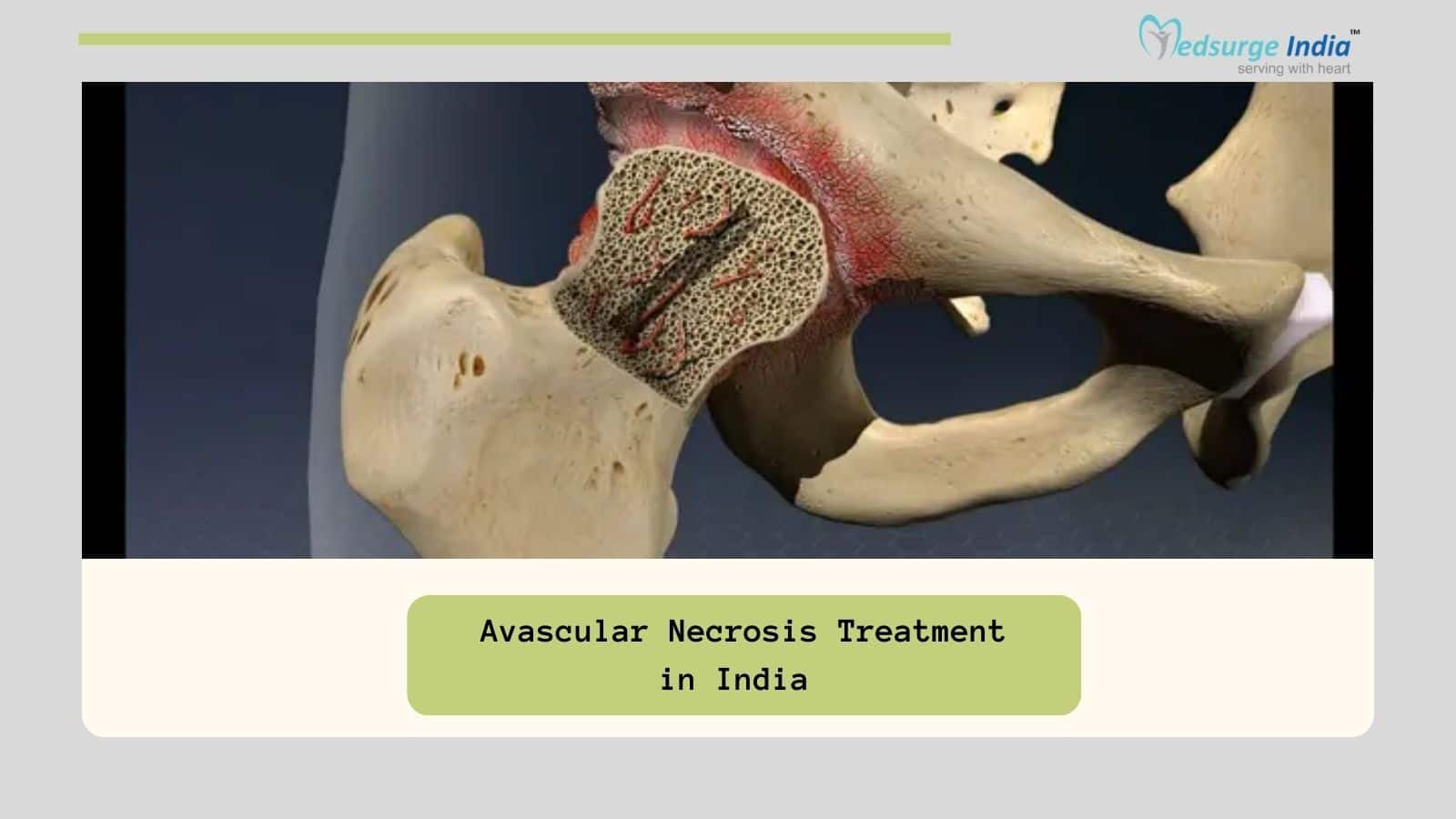
The loss of bone tissue brought on by a lack of blood supply is known as avascular necrosis. It is also known as osteonecrosis, and it can result in minute fractures that eventually cause the bone to collapse. Typically, the procedure can take up to certain months or years.
Blood flow to a portion of bone might be interrupted by a fractured bone or a dislocated joint. Both excessive alcohol use and long-term intake of high-dose steroid medicines are linked to avascular necrosis. Any person could be impacted by it. Nonetheless, those who are between the ages of 30 and 50 are most likely to have the illness.
Avascular necrosis can damage the bone in any joint, although it usually affects the hip. Avascular necrosis can also develop in the following other joints:
Before you have symptoms that could point to avascular necrosis, it could take weeks or months. The following are some progressive symptoms that may indicate avascular necrosis:

Avascular necrosis is brought on by diseases that stop blood flow to bone tissue or by fractures in the bone. Twenty percent of cases of avascular necrosis have no apparent cause. Avascular necrosis has the following known causes:
Occasionally, the etiology of non-traumatic avascular necrosis remains incompletely understood. Genetics probably plays a part, as does excessive alcohol consumption, use of certain drugs, and other illnesses.
Diagnosis of Avascular Necrosis can be as follows:
The treatment of Avascular Necrosis aims to relieve pain, improve joint function, and prevent the progression of the disease for patients. The choice of treatment will depend on the stage of Avascular Necrosis and the joint involved. Also, countries like India are known for having some of the best orthopedic doctors, and Avascular Necrosis Treatment in India can have the following types of treatment available:
It is very important to consult a medical professional for an accurate diagnosis of the patient's conditions and a personalized treatment plan for the patient if the doctor suspects Avascular Necrosis. Additionally, early detection and intervention will improve the patient’s chances of successful treatment and prevent further joint damage of the patient. The treatment plan will specifically depend on the patient's age, overall health, the stage of Avascular Necrosis, and the joint involved.
The success rate of an Avascular Necrosis treatment in India can vary depending on the factors such as the stage of the patient's condition, the chosen treatment approach, and the individual patient's response to therapy for Avascular Necrosis. Success rates may range from moderate to high, particularly when an early diagnosis and appropriate interventions are employed, and It is essential to consult with medical professionals in India to discuss specific treatment options and their associated success rates for your particular case.
The price of Avascular Necrosis Treatment in India is quite low in comparison to other countries. Moreover, the extent and satisfaction of medical care and offerings are equivalent to the ones located within the global's best hospitals. Even after travel, accommodations, and meal expenses are deducted, the complete Avascular Necrosis Treatment Cost in India starts from 2500 USD to 12,000 USD also, the final cost will depend on your total evaluation and the type of treatment you will need.
The important factors that can affect Avascular Necrosis Treatment in India are:
Medsurge India offers the best Avascular Necrosis Treatment Cost in India at an affordable price for international patients coming to India under the supervision of the most trained doctors.
Also Read:- Hip Replacement Surgery Cost in India
Patients from all over the world choose to come to India for Avascular Necrosis treatment as Avascular Necrosis Treatment Cost in India is more affordable plus they have some of the highest quality facilities, specialized expertise, shorter wait times, English-speaking professionals, tourism opportunities, and have access to alternative therapies which can be found only in India. Furthermore, India's rich cultural heritage and its medical innovations further attract patients seeking effective and affordable treatment.
Medsurge India is a prestigious support system for patients looking for doctors, hospitals, and specialized treatments. Our staff will provide you with a list of licensed, renowned, and trustworthy physicians and medical facilities in relation to your medical needs. Furthermore, we offer a treatment strategy that fits your budget. Apart, we assist patients with obtaining travel authorizations, medical visas, and a multitude of other things.
A: In treating AVN, no surgical technique is generally regarded as the best by surgeons. The best course of action in the early stages of AVN (precollapse) is usually thought to be core decompression, either with or without a bone graft.
A: There is no known cure for avascular necrosis, however, treatment can halt its progression. The majority of patients with avascular necrosis eventually undergo joint replacement surgery. Severe osteoarthritis can also develop in those with avascular necrosis.
A: By removing pressure from the bone throughout its healing process, using a walking aid lowers the possibility of breaking your hip during this critical period. Individuals who have had bone and blood vascular grafting must restrict their hip weight for a maximum of six months.
A: In the early stages of avascular necrosis of the hip, physical therapy may be a useful treatment option instead of surgery. In more complex cases, it is frequently also suggested to help with both operation preparation and post-operative rehabilitation.
A: In the event that your AVN is in Stage 3 or 4 (collapsed), your physician will probably replace your hip. With this process, artificial components are used to replace the broken bone. After hip replacement surgery, healing takes around eight weeks.
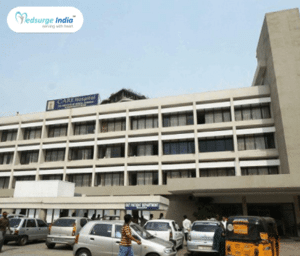
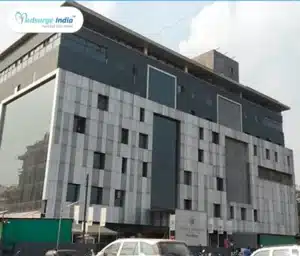
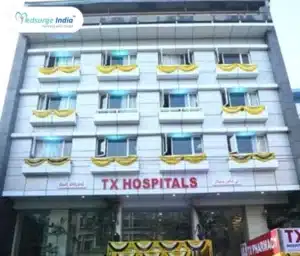
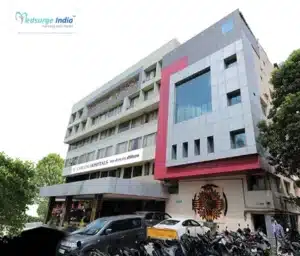



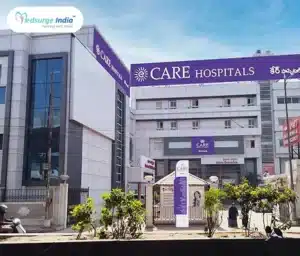
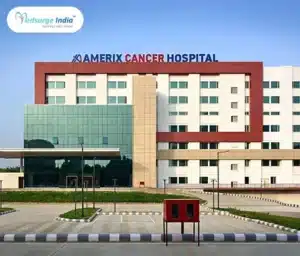
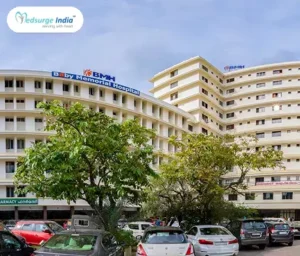
By using our site, you agree to our Terms and Conditions, Privacy Policy and Refund Policy. Medsurge India provides reliable healthcare information and treatment options to support informed decision-making. Our content is designed to support and complement the guidance of your treating doctor, helping you feel informed and confident throughout your healthcare journey. We also Accept International Payments.

Copyright © 2025 NSM ONLINE SOLUTIONS PRIVATE LIMITED. All rights reserved.